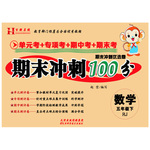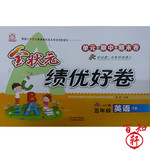题目内容
B
Ever since I was a small girl in school, I’ve been aware of what the school textbooks say about Indians. I am an Indian and, naturally, am interested in what the schools teach about natives of this land.
One day, I read that a delicacy(美味) of American Indian people was dried fish, which , according to the textbook, tasted “like an old shoe, or was like chewing on dried leather.” To this day I can remember my surprise, my anger and my sadness at reading these words. We called this wind-dried fish “sleet-shus”, and to us, it was our favorite delicacy and, indeed, did not taste like shoe leather, and didn’t rot our teeth and bring about the various dietary problem that trouble Indian people in modern times. It took many hours of long and hard work to cure the fish in just this particular fashion. Early fur traders and other non-Indians must have agreed, for they often had this food as they traveled around isolated areas.
I brought the textbook home to show it to my father, leader of my tribe at that time. On this particular day, he told me in his wise and modest manner that the outside world did not understand Indian people, and that I should not let it prevent me from learning the good parts of education.
At a later time in my life, I had brought a group of Indian people to the country fairgrounds to sell Indian-made arts and crafts. My group was excited to make some money by selling Indian handicrafts. We thanked the man who showed us to our booth and told him it was nice of him to remember the people of the Indian community. The man expanded a little and remarked that he liked Indian people. “In fact,” he went on to state, “we are bringing some professional Indians to do the show!”
As we stood there in shock, listening to this uninformed outsider, I looked at my dear Indian companion, an eighty-year-old woman who could well remember the great chiefs of the tribe who once owned all the land of this country before the white man came bringing “civilization”, which included diseases and pollution. My friend said not a word, but took the hurt as Indian people have done for many years.
Of course, we all knew that the “professional Indian” were not Indians at all, but dressed in leather and dancing their own dances. And, anyway, how does one become a “professional Indian”?
45.Which of the following statements about “sleet-shus” is true?
A.It tasted like an old shoe.
B.Eating it was like chewing on dried leather.
C.It was delicious but bad for our teeth.
D.It must have brought pleasure to Indians as well as early business men.
46.What does the writer mean by saying “how does one become ‘a professional Indian’”?
A.Only the Indians know how to become professional Indians.
B.The outside civilization can help and Indian become a professional Indian.
C.An Indian is a born professional Indian.
D.The outside civilization can help white people become professional Indians.
47.After reading the passage, you don’t know __________.
A.what the writer’s profession is
B.what upset the writer and her friend at the county fair
C.why the writer went to the county fair
D.the writer’s attitude to the so-called civilization
48.This story is primarily about ___________.
A.customs of native Americans
B.how textbooks describe native Americans.
C.misunderstanding between people from different cultures
D.how an Indian becomes a “professional Indian”
45—48 DCAC

 99加1领先期末特训卷系列答案
99加1领先期末特训卷系列答案 百强名校期末冲刺100分系列答案
百强名校期末冲刺100分系列答案 好成绩1加1期末冲刺100分系列答案
好成绩1加1期末冲刺100分系列答案 金状元绩优好卷系列答案
金状元绩优好卷系列答案E
| Thursday, January 3 | |
| Book a Librarian One-on-One Computer or Internet Training Session | Location:Main Library Training Center (5th F1.) Address:100 Larkin St.(at Grove) Library Sponsored Public Program Event Time:4 pm.-6 pm. Description: Do you need personalized help using a computer or the Internet? During the month of January,the library is offering limited one-on-one training sessions(培训课程).Sessions are limited to 30 minutes and require signing up in advance. Call (415) 557-4400 to book an appointment or for more information. |
| Friday, January 4 | |
| Beyond Journal Writing for Teens | Location:Main Library Paley Rm.(3rd F1.) Address:100 Larkin St.(at Grove) Library Sponsored Public Program Event Time:4 pm- 5:30 pm. Description: In this nine-week (January 4 through February 29) class,you will have the opportunity to develop and share your writing (poetry, biography and more) in a supportive group led by a Writers Corps teacher. Open to teen writers aged 13-19. For information,communicate with Betsy Levine,Teen Librarian,at (415) 557-4497 or E-mail blevine@sipI.org. |
| Tuesday, January 8 | |
| Power Panels and Films by World Savvy | Location:Main Library Koret Auditorium Address:100 Larkin St.(at Grove) Library Sponsored Public Program Event Time:5 pm-8 pm Description: World Savvy,The Global Film Initiative team up to take you on a world tour through explorations of art,media and film.Come and share how film and media affect youth,education and our global community at large.To book a position,communicate with Jennifer Collins at (415) 557—4268 or jennifercollins@sfpl.org. |
| Wednesday, January 9 | |
| Business Counseling Sessions | Location:Main Library (Fourth Floor Business Center) Address:100 Larkin St.(at Grove) Library Sponsored Public Program Event Time:10 am-3 pm Description: SCORE—Service Corps of Retired Executives(行政人员) offers free,one-hour business counseling(咨询) sessions from 10 am to 3 pm To schedule an appointment with a SCORE counselor,call(415) 744-6827. Cosponsored by the Business,Science and Technology Center. |
72.If a boy wants to improve the skill of writing poems he can call___________.
A.(415) 744-6827 B.(415) 557-4268
C.(415) 557-4497 D.(415) 557-4400
73.Who would be most likely to attend the event on Wednesday,January 9?
A.A science teacher B.A retried worker.
C.A school headmaster. D.A supermarket owner.
74.Which event doesn’t need booking in advance?
A.One-on-One Computer or Internet Training Session.
B.Beyond Journal Writing for Teens.
C.Power Panels and Films by World Savvy.
D.Business Counseling Sessions.